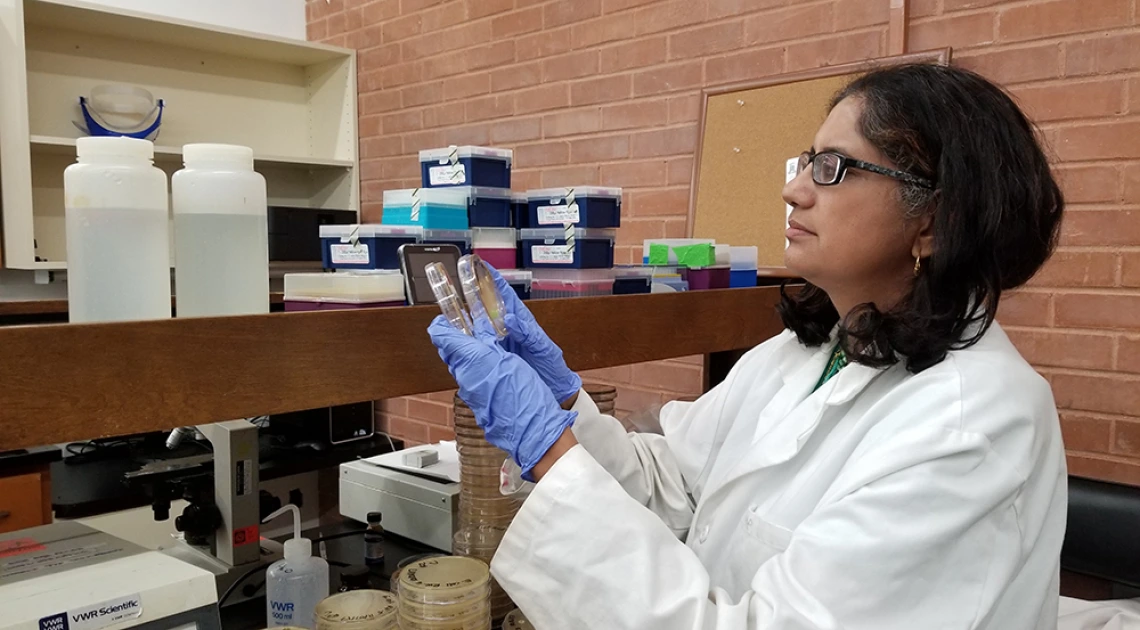Tech Blog: CALS Faculty Member Works to Prevent Foodborne Illness with Natural Antimicrobial Plant Wash

Sadhana Ravishankar
It is estimated that 480 million people get sick from foodborne illnesses like Salmonella, Listeria and Escherichia coli (E. coli) each year [1]. To prevent such illnesses, produce is typically washed with chlorine or hydrogen peroxide antimicrobial washes, both of which are harsh on produce and bad for human consumption. With resistance to the antibiotics that are used to treat foodborne pathogens on the rise, there is an increasing demand for the development of a safer and more natural alternatives to today’s methods. Sadhana Ravishankar, Ph.D., an associate professor in the University of Arizona College of Agriculture and Life Sciences, has done just that.
Ravishankar, who has dedicated her research to the control of foodborne pathogenic bacteria and natural antimicrobials, developed an organic antimicrobial wash solution for leafy greens that utilizes three plant essential oil formulations that are food compatible, natural and safe for human consumption.
The wash employs three essential oils that have exhibited antimicrobial properties, a method that has never been used in commercial or industrial products, and is specifically efficient in treating organic leafy greens where antibiotic resistant Salmonella enterica is often found.
“Consumers want natural products that are effective, yet do not cause harm to the environment," she says. "Our formulations have a specific niche market in food safety to provide an effective alternate solution to chemicals with added benefits of residual activity for higher efficacy that can enhance safety during transportation and storage.”
Ravishankar noted that the development of this technology was driven by the “clean label movement,” a consumer driven movement that demands products with no artificial ingredients or synthetic chemicals.
Tod McCauley, Tech Launch Arizona’s Senior Licensing Manager for the College of Agriculture and Life Sciences, is currently working with Ravishankar to bring this novel product to market.
Learn more about this technology, available for licensing:
Learn more about related technologies available from the University of Arizona:
- UA12-015 Antimicrobial Efficacy of Treatment Based on Plant Compounds
- UA16-234 Method to Improve Effectiveness of Antimicrobial Essential Oils
References:
[1] “Foodborne Illnesses and Germs.” Food Safety, Centers for Disease Control and Prevention, 16 Feb. 2018, www.cdc.gov/foodsafety/foodborne-germs.html(link is external).
[2] Your Guide to Clean Label™. Go Clean Label, gocleanlabel.com/.

